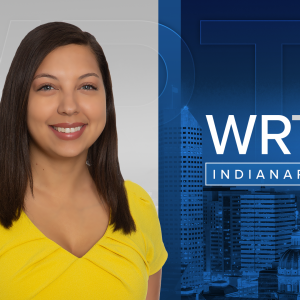INDIANAPOLIS — Thousands of interactions have helped IMPD's Mobile Crisis Assistance Team forge connections in the community.
In 2024, IMPD's Mobile Crisis Assistance Team was dispatched to over 2,700 active scenes.
It's freed up patrol officers while providing mental health resources alongside a clinician.

"We take all kinds of mental health runs throughout the city. We have family members that call us saying they have family members that they feel are in crisis or refusing to go get help," said IMPD Maj. Tabatha McLemore.
IMPD Mobile Crisis Assistance Team is made up of an officer and a clinician from Eskenazi.
"It gives us extra resources. We have a clinician there so they can actually help with diagnoses and things like that," said Maj. McLemore.

Besides the 2,700 active runs, MCAT said teams have also gone back to around a thousand homes to meet with people struggling with mental health and have built relationships in those communities.
"We have seven teams with MCAT. Then, we have two that's up in the northwest but mental health is everywhere," she said.
The teams still aren't available 24/7.

They're separate from the city's clinician-led response team, which responds to east and downtown districts. North district will be added in 2025.
But Maj. McLemore said they all work together.
"We're allowed unlimited time with the person. We're not like our beat officers that have to try to get to the next run. We can take as much time as we need. We can slow things down. We can de-escalate," she said. "I think that it impacts the community a lot, and it's something that we'll probably never be able to really truly put a number on."

IMPD said many in the community are more comfortable with the softer approach.
"A lot of times, if your family members are in crisis, you don't want that street officer that's coming up in full gear. We're in a softer uniform. They don't feel like they're just being bombarded by the police," said Maj. McLemore.
Maj. McLemore encourages families to be there for each other, and reach out for help, especially during the holidays.

"Based on my experience, there is an uptick around the holidays. And then you have weather changes here in great Indiana," she said.
Next year, there will be changes. It's called the Unified Mental Health Response.
What that means is the city's police officers, firefighters, medics and dispatchers will have the same mental health response training so when agencies are called to handle these scenes, everyone can work together.

MCAT is dispatched through 911.
For non-violent crises, you can call the state's suicide and crisis hotline at 988.











